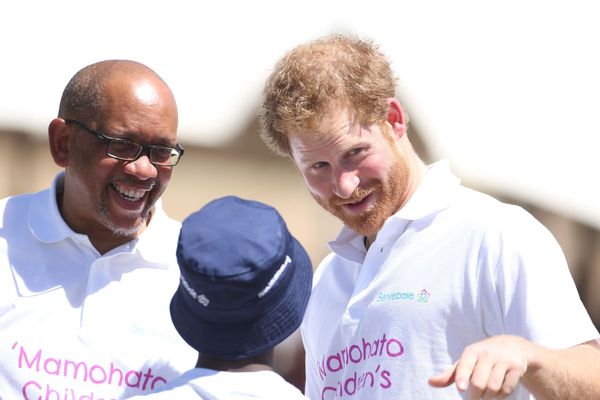Bristol Myers Squibb announced its $14 billion acquisition of Karuna Therapeutics on Friday, sending KRTX stock into the stratosphere.
The deal comes as the Food and Drug Administration reviews Karuna's experimental schizophrenia treatment, KarXT. If approved in September, KarXT would be the first new mechanism to tackle the disease in decades. Karuna is also testing the same drug in psychosis due to Alzheimer's disease. It's also doing work in other neuropsychiatric and neurodegenerative diseases.
Mizuho Securities analyst Graig Suvannavejh says the deal makes sense given Bristol Myers' focus on neurodegeneration and neuroinflammation. The company is testing an Alzheimer's treatment that focuses on built-up tau plaque and a treatment for amyotrophic lateral sclerosis, or ALS. The latter is a progressive disease that affects nerve cells in the brain and spinal cord.
"With Karuna's portfolio addressing the psychiatry side of neurological diseases, we initially believe the deal could receive less regulatory scrutiny," he said in a note. "That said, given current scarcity value of high profile, high revenue potential, de-risked assets such as Karuna, we wouldn't rule out the possibility that bidders could emerge."
On the stock market today, KRTX stock soared 47.7% to 317.85. That pushed Karuna stock well above a cup base with a buy point at 245, according to MarketSmith.com. Bristol Myers stock jumped 2% to 52.29.
Shares of other neuroscience-focused companies also gained. Neurocrine Biosciences stock popped 6% to 128.45. Intra-Cellular Therapies shares surged 5.5% to 70.35. Shares of Xenon Pharmaceuticals jumped 7.5% to close at 44.63.
Bristol Pays A Massive Premium On KRTX Stock
The deal values KRTX stock at 333 per share, or a 53% premium to the closing price on Thursday. It's expected to close in the middle of next year.
William Blair analyst Matt Phipps says the deal shows Bristol Myers was serious when it mentioned reestablishing neuroscience as a pipeline focus during its research and development event this fall. It also underlined management's aggressive push to replace an expected revenue decline as key products lose patent protection and face generics later this decade, he added.
"While we can debate whether the acquisition is overpaying for KarXT, the drug has show strong (effectiveness) across trials to date and should receive regulatory approval in the second half of 2024, adding another drug to the important new product portfolio," he said in a report.
How Karuna Hopes To Change Schizophrenia
KarXT differs from other schizophrenia treatments on the market, Chief Operating Officer Andrew Miller told Investor's Business Daily in an October interview.
Other drugs target neurotransmitters called dopamine and serotonin. This can help improve positive symptoms of the disease — changes in behavior or thoughts, such as hallucinations or delusions — but has little impact on the negative symptoms. The latter includes affect, reduced words spoken, ability to feel happiness, social withdrawal and reduced activity.
Patients are also often not compliant with their dosing regimens. Typical schizophrenia medicines often cause weight gain, Parkinson's disease-like shaking and sedation or insomnia.
Bullishly for KRTX stock, its drug doesn't work on the same receptors.
"In general, one of the goals of treatment is to keep people on their treatment and keep people on their medicine," Miller said. "People discontinue treatment for lack of (effectiveness) as well as the safety and side effect considerations at meaningful rates. There are studies that as many as three-quarters of patients will discontinue treatment within 18 months."
Many patients will switch medications frequently, trying to find something more effective with fewer side effects. In recent testing, just 7% of patients who took KarXT discontinued treatment due to side effects compared to 6% of placebo recipients.
"I think anything we can do to improve on the (effectiveness) and safety or tolerability side has the potential advantages in terms of long-term compliance," he said.
Potential $7 Billion In Peak Sales
The FDA is currently reviewing Karuna's application for approval with a target date of Sept. 26. William Blair's Phipps notes Karuna is also testing its drug in combination with standard treatments for schizophrenia and Alzheimer's disease psychosis.
"Bristol believes KarXT has potential in additional neuroscience indications, such as bipolar 1 disorder and Alzheimer's disease agitation," he said. "Management did not multibillion-dollar revenue potential for KarXT, but did not provide a sense of how this may be split among potential indications."
Fellow William Blair analyst Myles Minter, who covers KRTX stock, has previously projected $7 billion in peak KarXT sales. Half of that would come from Alzheimer's psychosis treatment. Currently, there aren't any treatment options for those patients.
Minter has an outperform rating on KRTX stock, while Phipps has a market perform rating on Bristol Myers shares.
Follow Allison Gatlin on X, the platform formerly known as Twitter, at @IBD_AGatlin.







